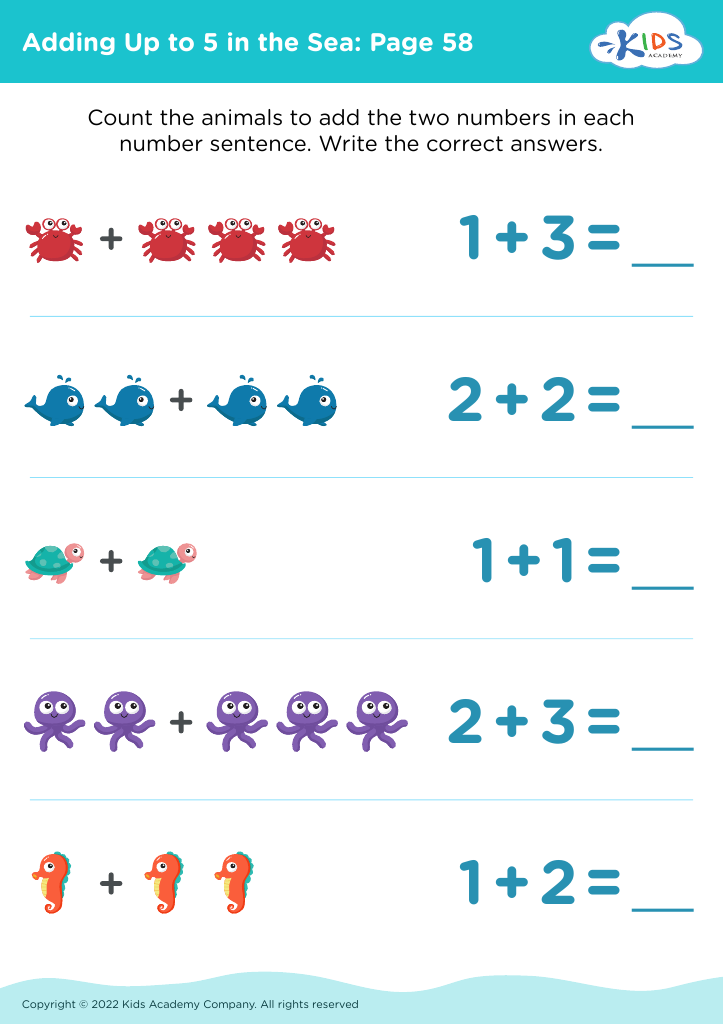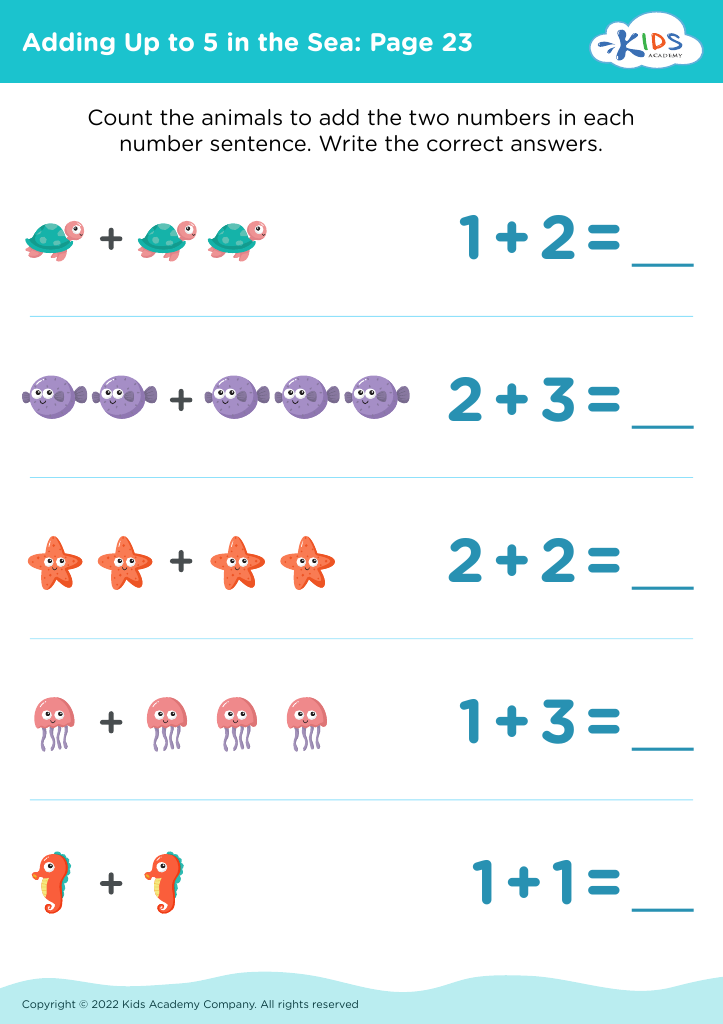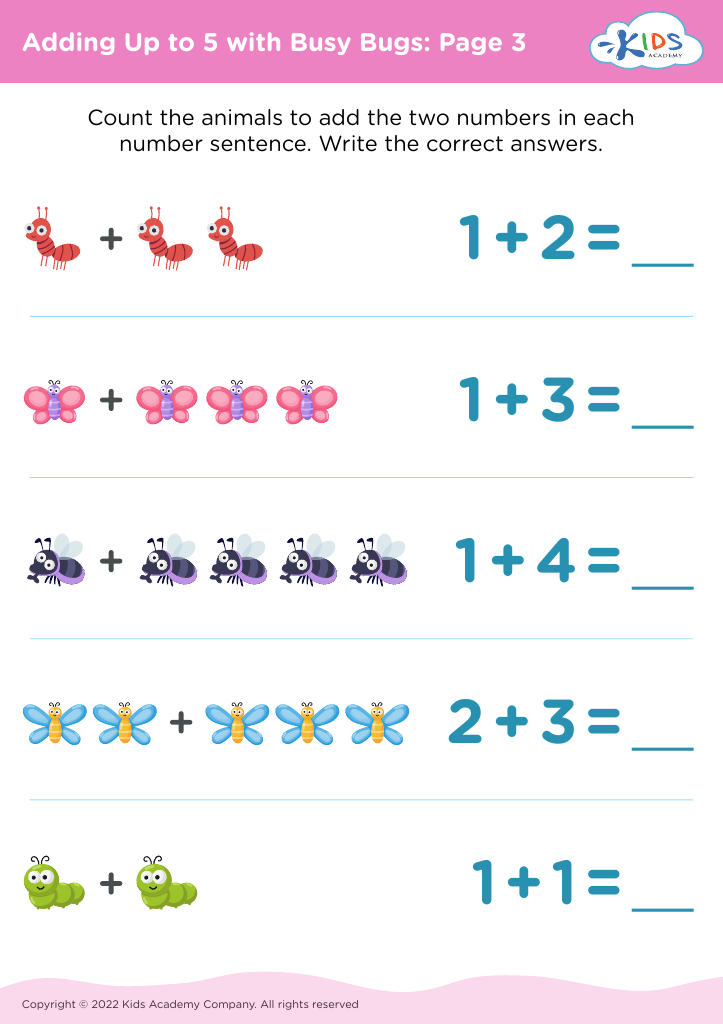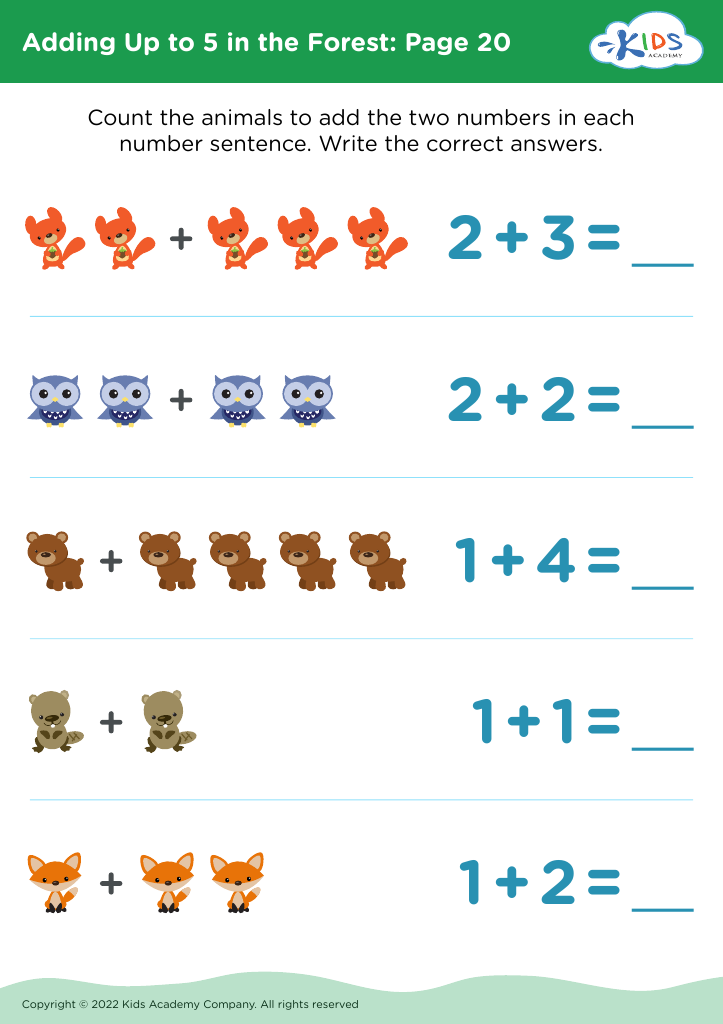Understanding numerical values Addition & Subtraction Worksheets for Ages 3-5
4 filtered results
-
From - To
Discover a world of learning with our "Understanding Numerical Values Addition & Subtraction Worksheets" tailored for ages 3-5. These printable worksheets from Kids Academy are designed to introduce young learners to foundational math skills through fun and engaging exercises. Children will explore numerical values, master simple addition and subtraction, and enhance their problem-solving abilities. Ideal for both classroom and home learning, our worksheets foster a love for math in a playful, pressure-free environment. Empower your child’s early education journey with expertly crafted activities that combine learning with joy. Visit Kids Academy for endless educational adventures!
Understanding numerical values, addition, and subtraction for children ages 3-5 is crucial as it lays the foundation for future mathematical learning and everyday problem-solving skills. At this early age, children’s brains are highly receptive to new concepts, and nurturing numerical understanding can have long-term benefits.
Firstly, grasping basic numerical values helps children recognize and quantify objects, fostering their ability to compare quantities and understand the concepts of more or less. This initial exposure builds number sense, which is the cornerstone of all subsequent math learning.
Secondly, learning addition and subtraction introduces children to the idea of manipulating numbers, which enhances their cognitive and logical thinking skills. These operations enable children to solve simple problems, encouraging critical thinking and the ability to approach problems methodically.
For parents and teachers, integrating these concepts into daily activities gives children a practical understanding of math in the context of real life. Simple tasks like counting toys, sharing snacks, or playing math games can make learning engaging and relevant.
Moreover, early proficiency in basic math can boost a child's confidence and interest in the subject, setting a positive trajectory for their educational journey. Recognizing the significance of these skills ensures children are well-prepared for the more complex mathematical challenges they'll encounter later in their academic careers.





















